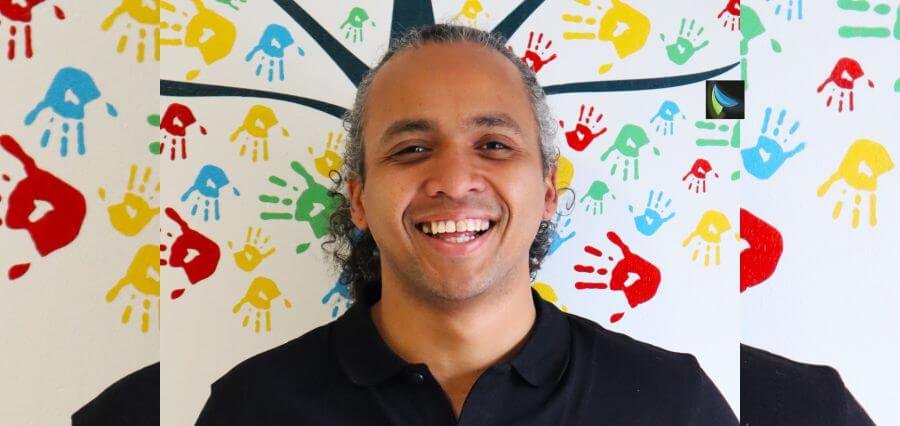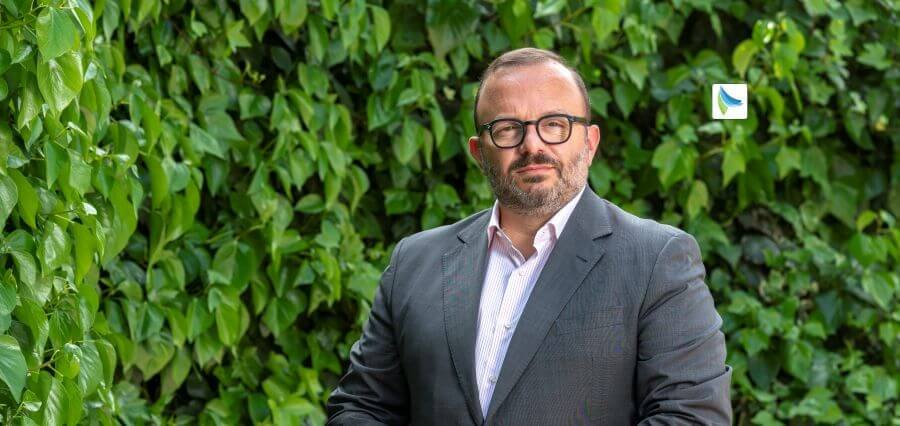Empowering South African Youth Leaders to Promote Equal Access to Education!
Access to quality education remains a fundamental right that should be afforded to every child, regardless of their socioeconomic background, ethnicity, or geographic location. Despite progress, quality education still remains a critical challenge in South Africa. Since the end of apartheid, many children still lack opportunities to reach their full potential.
Addressing this issue for the nation’s future prosperity and social cohesion, David’s passion for education and community development has profoundly directed his vision, following the philosophy of ‘Teach for All.’
Meet David Oliphant, Co-Founder and CEO of Teach the Nation (TTN), whose journey from the challenging streets of Cape Town to the helm of a transformative organization is an example of the power of education and perseverance.
David’s upbringing in a marginalized community was not just a chapter in his life; it became the foundation of his mission. The daily struggles he witnessed and experienced firsthand gave him a unique perspective on the systemic inequalities that plague South Africa’s education system. Instead of accepting these challenges as insurmountable, Oliphant saw them as a call to action.
Teach the Nation, under his leadership, has developed as an alarm of optimism in the educational domain. The organization’s core belief is simple yet powerful: every child, regardless of their socio-economic background, deserves access to quality education. This is not just a lofty ideal for him; it’s a personal mission rooted in his own experiences.
What sets TTN apart is its focus on developing a community of leaders who share David’s vision. By nurturing a network of educators, mentors, and advocates, TTN is creating a ripple effect of positive change that extends far beyond the classroom. This approach recognizes that true transformation requires more than just resources; it also needs passionate individuals committed to long-term change.
His leadership style is deeply informed by his background. He brings a level of empathy and understanding to his role that can only come from lived experience. This authenticity has allowed TTN to connect with communities in a way that many other organizations struggle to achieve.
The impact of Teach the Nation under his guidance has been significant. While specific metrics are not provided, the organization’s growing influence in South African education circles speaks volumes. TTN is not just providing education; it’s reshaping the narrative around what’s possible for children from disadvantaged backgrounds.
As he looks to the future, his vision for TTN remains ambitious yet grounded in reality. He understands that building a brighter future for all South Africans is a marathon, not a sprint. But with every child reached, every community engaged, and every leader developed, Teach the Nation is inching closer to realizing Oliphant’s dream of educational equality.
Below are the interview highlights:
Could you please give a brief introduction to your company and its inception story?
At Teach the Nation, we believe that by investing in the leadership potential of our fellows and students, we can create a ripple effect of change that extends beyond the classroom. Our alumni become part of a global network of leaders who are dedicated to building a more equitable and just education system for all children in South Africa, regardless of their socio-economic background.
From our first meeting at the Young African Leaders Initiative to the thriving non-profit organization we are today, Teach the Nation remains committed to our founding vision of a South Africa where every child has access to quality education and the opportunity to reach their full potential.
How have your personal experiences growing up in a low-income community in Cape Town shaped your passion for education and community development?
I firmly believe that God did not intend for us to live in fear or to be deprived of the opportunity to thrive. Every individual deserves access to quality education, a safe environment, and the chance to build a better future for themselves and their loved ones.
Education, in my view, is the most powerful lever for change. By providing young people in marginalized communities with an education that prepares them for the future world of work and equips them with the skills and resilience to navigate life’s challenges, we can break the cycle of poverty and create a more equitable society.
As a Young African Leaders Initiative (YALI) fellow, what key insights or lessons did you gain that inspired you to co-found Teach the Nation?
One of the most valuable lessons I gained from YALI was the power of diversity and collaboration. Working alongside 134 leaders from across the SADAC region was an incredible opportunity to learn from a wide range of perspectives and experiences.
This diversity of thought allowed us to approach challenges in unique and innovative ways, and to develop solutions that were truly grounded in the needs of local communities.
Can you share an example of how Teach the Nation is working to break down the walls of segregation in communities created by the apartheid regime?
Teach the Nation is addressing the legacy of apartheid by working in under-resourced schools and communities where overcrowded classrooms, a lack of resources, and low motivation persist.
We recruit local leaders with NQF level 7 qualifications from these communities to serve as role models, showing students what is possible. As a child from a background of domestic violence and drug addiction, I share my story of hope as an example of overcoming barriers.
Our fellows have started women’s empowerment programs, raised academic results, and impacted over 40,000 learners in four years by developing local leaders to solve local challenges.
What role do you believe community and youth leadership should play in addressing historical injustices and ensuring access to quality education in South Africa?
While outside support is always welcome, we must prioritize the capacity-building of local communities and their leaders. These individuals have a deep understanding of the unique challenges and opportunities within their contexts and are well-positioned to develop solutions that are relevant and effective.
As a society, we must prioritize the development of community and youth leadership, recognizing the vital role they play in building a more just and equitable South Africa. Through targeted investments in education, capacity building, and leadership development, we can unlock the full potential of our communities and pave the way for a brighter future for all.
What challenges have you faced in transitioning from your role at Old Mutual Investment Group to becoming a full-time CEO of Teach the Nation, and how have you overcome them?
In a for-profit environment, you can easily inspire someone and motivate a partnership through a research project document that reflects a positive financial return. But in the non-profit space, you need to inspire and motivate for social impact rather than financial return.
I have to now inspire a country and a group of fellows around the change we want to see at the country level, and that language and way of being were an adjustment for me. Fundraising for social impact is also a big adjustment compared to selling a service.
Can you describe a particularly rewarding experience or success story that has come out of Teach the Nation’s programs?
It is rewarding that in 2020, people thought we were crazy when we wanted to launch Teach the Nation, and they thought our goals in terms of the number of recruits were too big to recruit 100 people in 2021; we achieved recruiting 102 recruits in 2021.
Fast forward: we have mostly achieved all of our goals, and now principals are coming to us for support and want us to recruit fellows for their schools and also support them with whole-school improvement.
We also have a partnership with the National Department of Basic Education, and they want to partner with us to expand our program nationally.



















